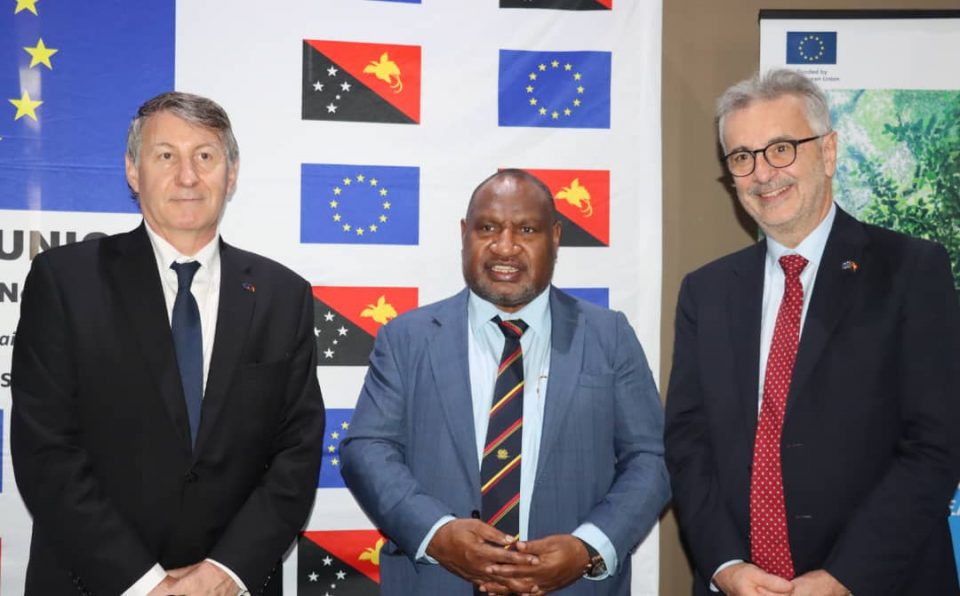Prime Minister James Marape yesterday reinforced Papua New Guinea’s global identity as a “forest nation” during the official launch of the K210 million European Union-funded Forestry, Climate Change and Biodiversity (EU-FCCB) Programme.
The Prime Minister extended his heartfelt gratitude to the European Union for this, and various other projects, including the K340 million PNG-EU-STREIT programme for smallholder farmers in East and West Sepik, which he launched in 2019 upon taking office.
He expressed that Papua New Guinea eagerly anticipates this partnership, as it will play a pivotal role in safeguarding our rainforests for the benefit of our future generations.
The EU-FCCB, operational from 2023 to 2027, aligns with Papua New Guinea’s commitment to ensure the sustainable management of its natural resources and transition towards a green, carbon-neutral economy.
The programme’s scope encompasses the Managalas Conservation Area in Northern (Oro), East and West Sepik, as well as Port Moresby and the National Capital District.
This initiative will advocate for a development model that harmonizes climate change mitigation, environmental conservation, and biodiversity preservation with sustainable, inclusive, and gender-responsive green growth and job creation. It will engage various stakeholders, including national, sub-national, and pilot community and conservation area levels, as well as institutional, scientific, academic, civil society, and private actors, to facilitate long-term sustainable impact.
Stating that PNG should be better recognised as a ‘forest nation’ on the global stage, attributing the EU’s support to his discussions with French President H.E. Emmanuel Macron in Gabon in March, Port Moresby in July and Paris in September.
He noted that France, as a prominent leader in the European Union, played a pivotal role in securing this support.
Prime Minister Marape further underscored that the EU-FCCB would directly benefit communities in areas like the Managalas Conservation Area, enabling them to conserve their forests and biodiversity. He encouraged communities in other forested regions across the country to register through their provincial governments to benefit from similar programmes.


